Dissatisfaction with the West's sanctions is growing here
"Affecting ordinary people"
Boarded out windows and public anger - here the crisis is visible on the streets
"They urge us to wash ourselves with a washcloth instead of showering. They themselves are sitting in their lighted floors.”
Winter is coming
Of:
Wolfgang Hansson
Less than 1 hour ago
The shouts echo through the walls of the house.
"Warmth, bread and peace! Warmth, bread and peace".
At the front of the demonstration train, some police pickets with blue juice blenders drive at a snail's pace as the snake of people turns onto Unter den Linden.
BERLIN, GERMANY. Across Germany, people are demonstrating against high energy prices and a general increase in the cost of living. So far, it is mostly groups on the outer edges who take to the streets, but it is widely believed that when winter - and the first electricity bills - come, there will be mass protests.
The situation is somewhat reminiscent of what happened during the corona pandemic. In the beginning the protests were small but they grew over time and became a problem for the government.
In this demonstration in Berlin, 1,500 people are participating according to the organizers, who are a number of different groups on the left. Homemade placards are mixed with printed banners.
"Ahead of price freezes on energy and food," reads one. "Down with the prices, up with the wages," reads another.
Three men hold up a slightly larger banner demanding that Nord Stream 2 be repaired and opened up to receive Russian gas.
Many of the groups are demonstrating for peace in Ukraine.
- We have to negotiate with Russia, says a speaker through the loudspeaker system. We must repair Nord Stream 1 and 2 and open them for gas deliveries. And we must end the sanctions.
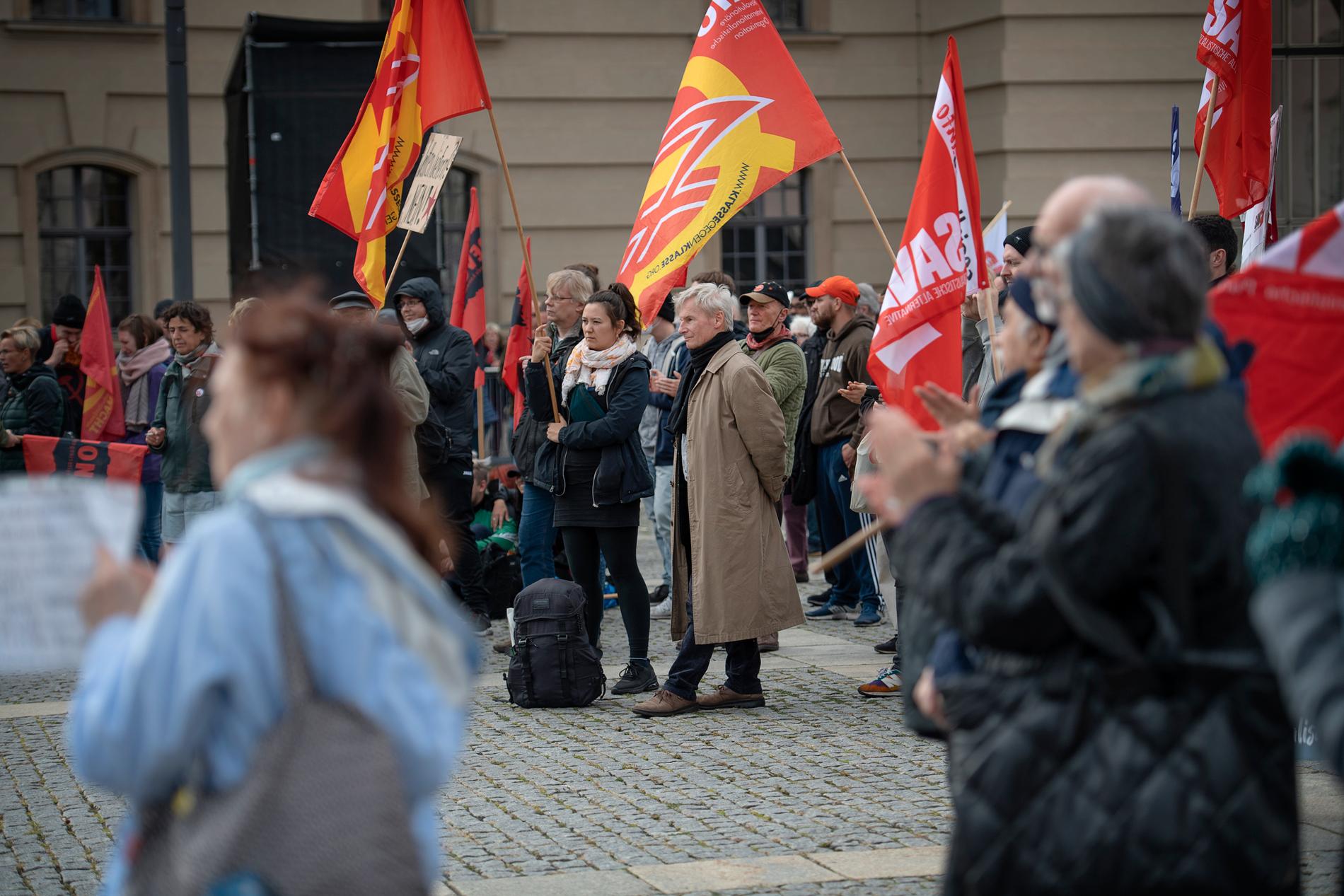
Demonstration in Berlin against the high electricity prices and for peace in Ukraine. Photo: Jerker Ivarsson
The audience cheers and applauds. Police buses are parked around the square between the Brandenburg Gate and Alexanderplatz where everyone has gathered. A few police officers patrol with their riot helmets hanging from their hips. Others remain in their cars.
Jaquline Catarina Singh, 26, is participating in the demonstration because she is worried that her mother will not be able to cope with the high electricity bills.
- She is an early retiree and her pension is barely enough as it is, says the dark-haired student.
- When she goes into the grocery store, she has to turn over every penny. She does not dare to turn on the heat at home for fear that it will be too expensive.
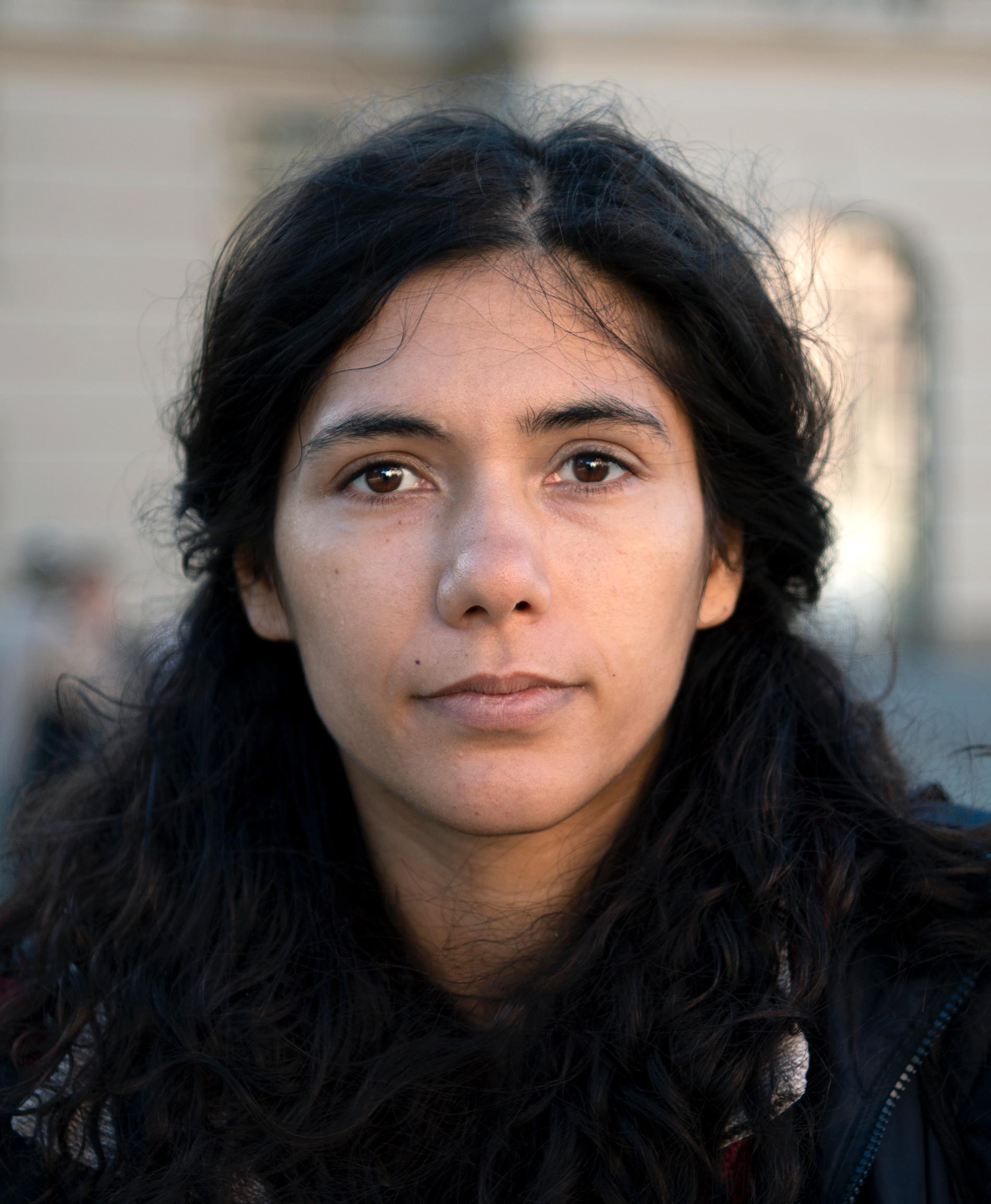
Jaquline Catarina Singh, 26, is worried that her mother will not be able to meet the high electricity bills. Photo: Jerker Ivarsson
At present, it is unclear how it will go, says Jaquline.
- If she can't make it, I have to try to support her financially and I'm a student.
Just like all other students, the government has promised SEK 2,000 in grants to meet the cost increases.
- But we won't get the money until January, complains Jaquline. It is now that I have to pay my bills.
She has friends who received ten thousand kroner in their electricity bill.
- It is more than double the normal. But wages have not doubled.
Jaquline thinks there should be an immediate price freeze on all essential goods.
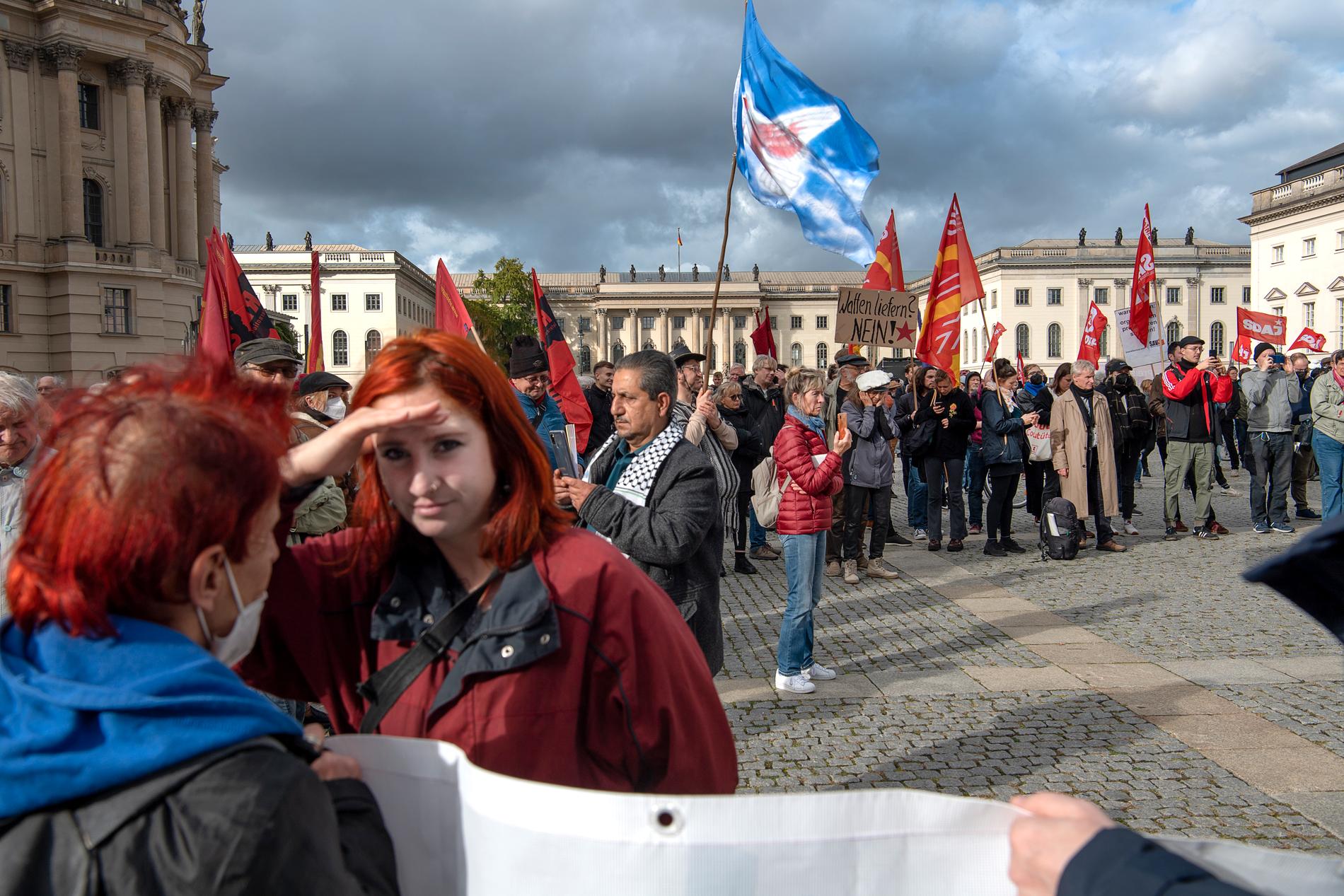
Across Germany, people are demonstrating against rising living costs. Photo: Jerker Ivarsson
For Barbara Majd Amin, it is not the electricity bills that frighten her the most. She lives in a rented apartment and manages decently.
- I'm more afraid of the war, she says in a subdued voice. I think the war could spread if we don't get a truce. If we can get peace, the prices will also drop.
She thinks the West did most of the wrong in its response to Putin's invasion of Ukraine.
- It was we ourselves who first used the energy weapon by imposing sanctions on Russia. And now we are surprised when Russia responds with the same coin. It should have been easy to predict. Some kind of negotiations must take place, but at the same time we have closed all the doors to Russia. It's dangerous.
She sounds more and more desperate as she continues.
- We are constantly sending more weapons to Ukraine and are told that it will bring peace. It's completely absurd.
In a gesture of helplessness, she lashes out with her hands.
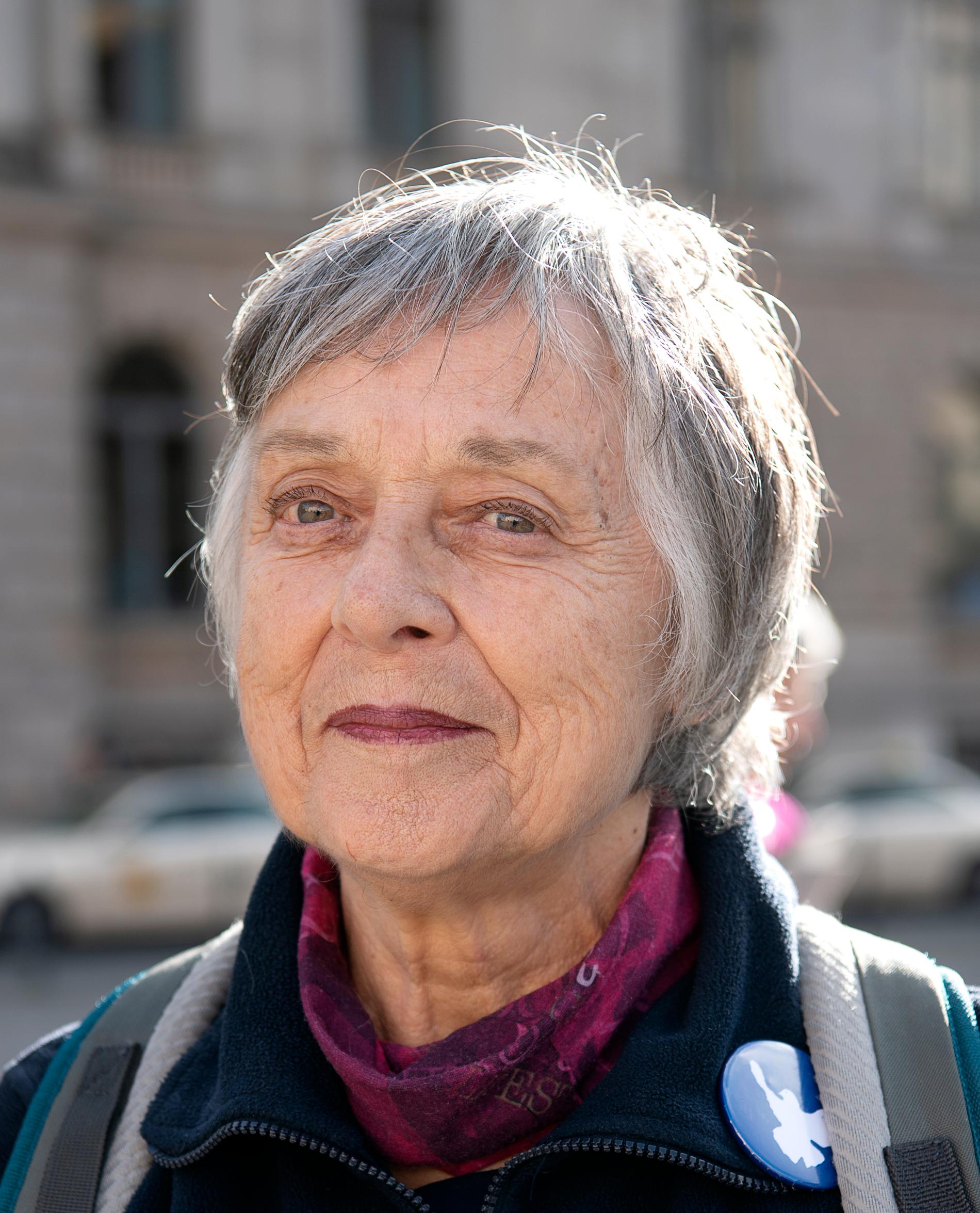
Barbara Majd Amin is more afraid of the war in Ukraine than increased electricity prices. Photo: Jerker Ivarsson
The speakers tune up again. The metallic sound of a megaphone rises towards the sky. "Warmth, bread and peace!".
More and more Germans connect the sharp cost increases with the war. Three out of four still say that the country should continue to support Ukraine, but the question is how it will be in the winter when people both risk becoming poor and freezing.
Those we meet at the demonstration are not representative of the average German, but opinion polls show that support for Ukraine is decreasing, not least in the eastern parts of Germany, where one in three wants to see an end to arms deliveries to Ukraine.
Many think that the war has come uncomfortably close to Germany with the attacks on Nord Stream, whose lines end in Germany.
Martin Sucherneck holds a home-made placard demanding a price ceiling for energy. For him, the most important thing is to get access to the energy companies that make big profits from the high prices.
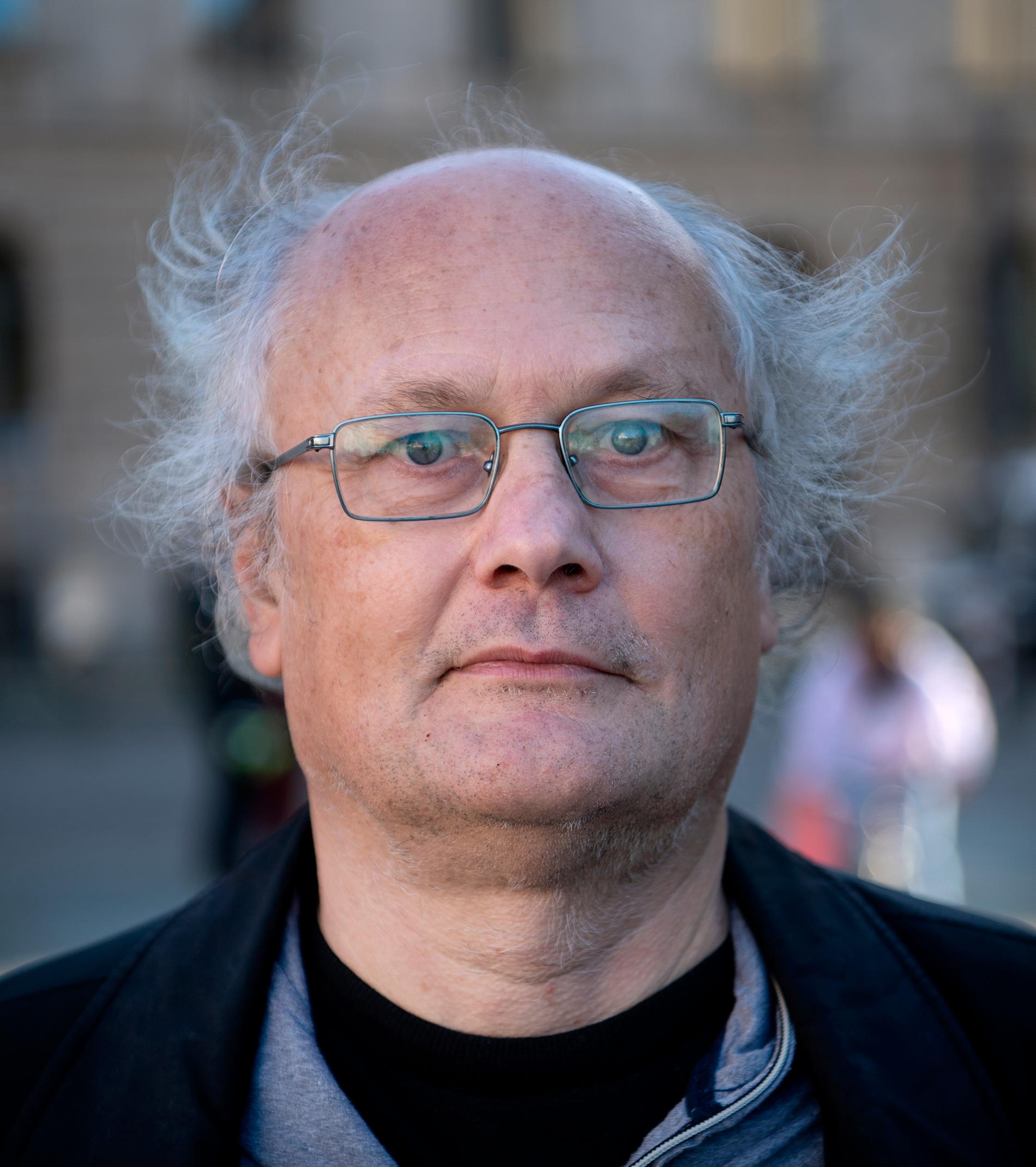
"The government is doing a great job for those who are already rich," says Martin Zucherneck. Photo: Jerker Ivarsson
- I want the companies to be taken over by the state and that we restructure the entire energy market in a way that benefits ordinary people instead of large companies with profit interests.
He adjusts his glasses and runs one hand quickly over his almost completely bald head.
- Of course I'm worried about my electricity bills, he says. Not least because we still have no idea what the state support will look like. Will the state pay five percent of the electricity bill or ten or 20? We all live in great uncertainty. On top of that comes all the other goods that go up in price week by week.
I ask if he thinks the government is handling the energy crisis in a good way. He grumbles in displeasure.
- The government is doing a great job for those who are already rich. But a single mother who is about to give birth to her children has found herself in a tight spot. The working class is already struggling to afford it.
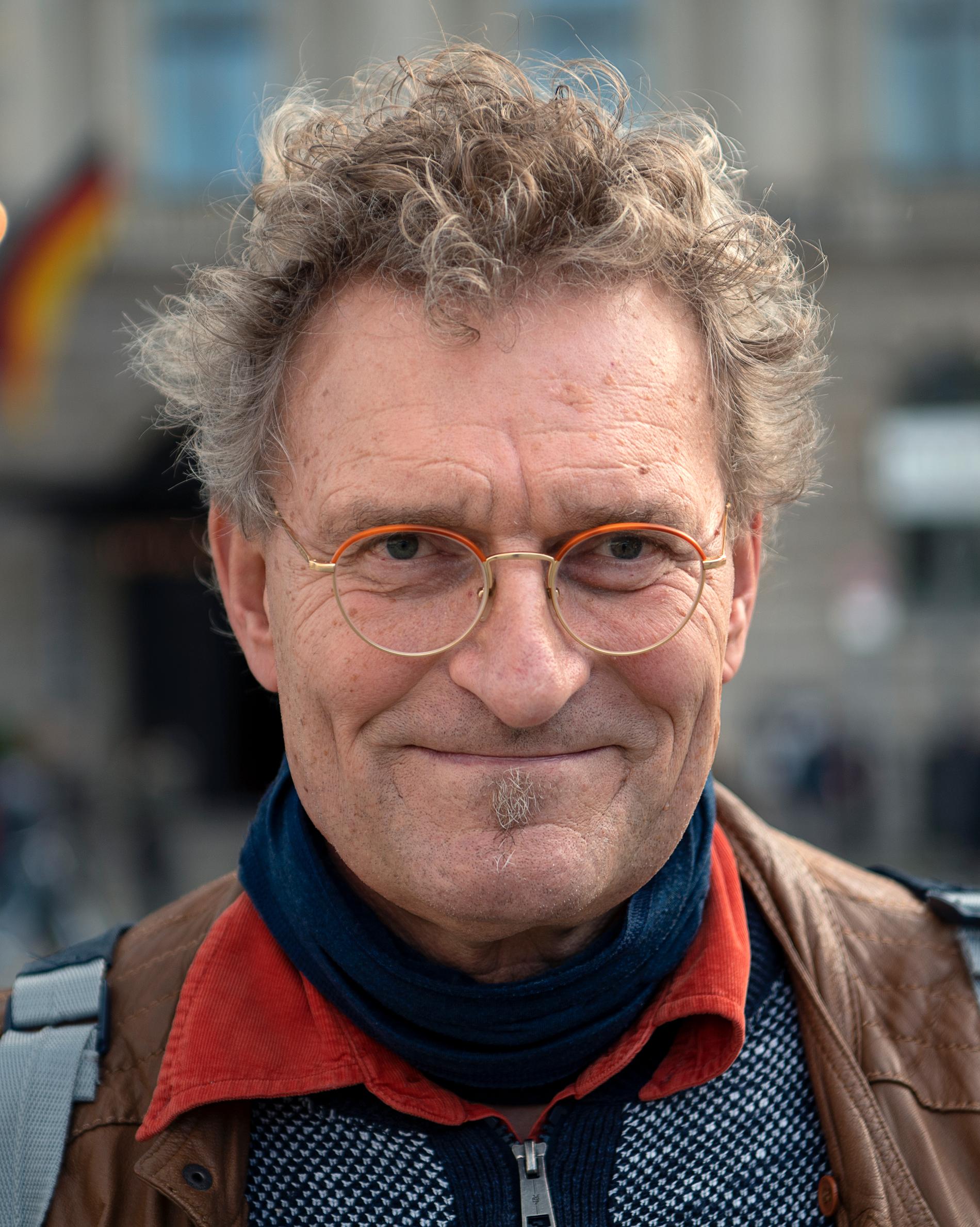
Pensioner Peter Hoffmann is there to show his dissatisfaction with the policy of the German government. Photo: Jerker Ivarsson
A slightly cold autumn wind is blowing. Yellow leaves swirl around. The sky is mostly cloudy. But pensioner Peter Hoffmann still wanted to come to show his dissatisfaction with the policy of the coalition government consisting of Social Democrats, Environmental Party and Liberal Democrats.
To be safe, he has dressed in a substantial leather jacket.
He believes that the government made a big mistake when they introduced the sanctions against Russia.
- They decided on the sanctions without first thinking about the consequences. Now we have big problems and it affects ordinary people.
He is also really pissed off at the government's call to citizens to save on energy.
- They urge us to turn off the lights and to wash ourselves with a washcloth instead of showering. But they themselves sit in their lighted floors and don't have to cut down on anything. They can afford to pay their bills no matter how high they are.
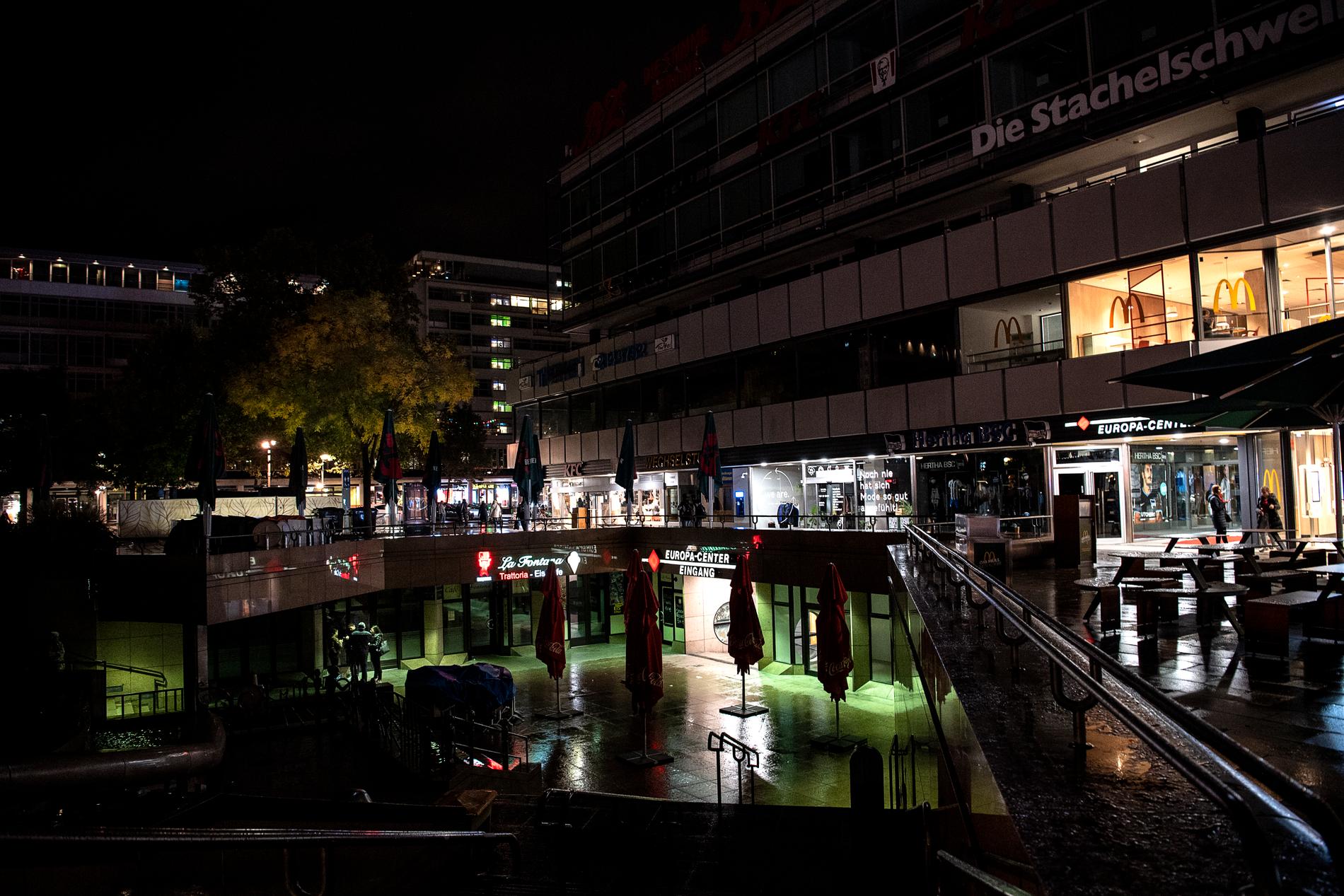
In the central parts of Berlin, some shops are dimmed, while others let the light flow. Photo: Jerker Ivarsson
In fact, the government has even introduced a regulation which means that all public buildings, business signs and shop windows must be switched off after ten o'clock in the evening.
When we go down to the Kurfürstendamm shopping street one evening to see how it's being followed, it's a bit so and so. The Mercedes sign on top of a tall glass building goes out on the stroke of ten. The famous memorial Gedänkneskirche, a partial ruin from the Second World War is eerily dark. Many facades are black. But at the same time it shines as usual in many shop windows.
HM's shop in the old Kranzler Cafe's classic round building is closed. But Hugo Boss does not skimp on the lighting. In Apple's concept store with hundreds of iPhones and tablets, the light is so bright that you are almost blinded.
When we wander around Hamburg's harbor quarter one evening, the picture is the same. The town is more subdued than it usually is, but not everyone follows the rules.
Oliver Powalla from the environmental organization Bund still thinks that a savings campaign is good. He himself has cycled to our meeting instead of taking the car.
- You may not save large amounts of energy, and it will not save us, but it is still a good signal to the public. Things like lowering the indoor temperature a few degrees can be kept even after the crisis. For the future, it is important that we improve energy efficiency.
However, he thinks that the state should be more detailed in its demands on households and companies.
- Now it's a bit like everyone does what they want. There is no real control.

Oliver Powalla from the environmental organization Bund is positive about the savings campaign. "Maybe you don't save large amounts of energy, but it's still a good signal to the public." Photo: Jerker Ivarsson
Not everyone who crosses the square where the demonstration is held is an activist. Teacher Verena Steinhardt, 45, happens to be passing with her daughter. She is pessimistic about winter.
- I haven't seen any electricity bills yet but we have put some money aside because I fear the worst.
She thinks it was a big mistake for Germany to become so dependent on Russian gas.
- The biggest mistake we made. We have to pay for that now.
But she still thinks that the government is behaving decently.
- They are not wizards. They can't get gas anyway.
She does not hesitate when I ask the question whether Germany will survive the crisis.
- We will do that, she asserts. We are a rich country that has better conditions than most others to cope with a crisis like this.

Inga kommentarer:
Skicka en kommentar